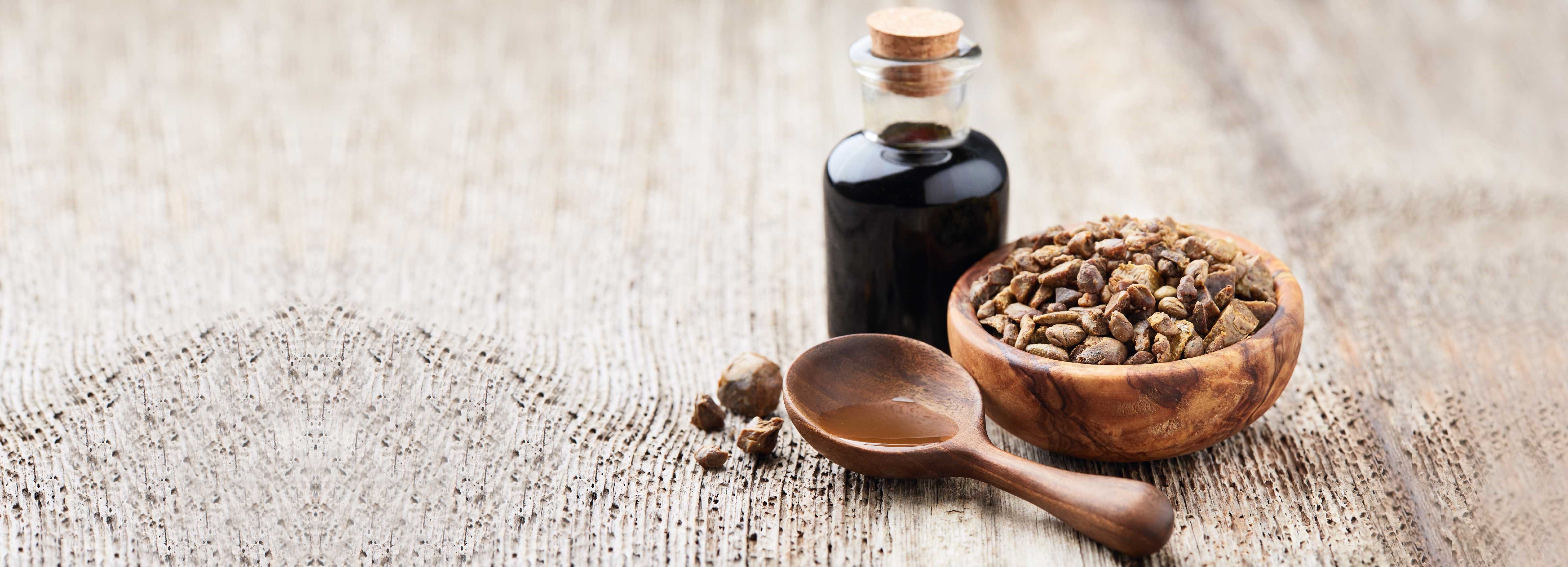Benefits of Propolis

What is Propolis?
Propolis is generally known as "bee glue" and is the general term for the resinous substance collected by bees from different plant species. The word "propolis" comes from Greek, where "pro" means defense, "polis" means city or community, and "polis" also means beehive or colony. Propolis functions in sealing cracks and crevices and rebuilding the beehive.
Due to its antiseptic, anti-inflammatory, antioxidant, antibacterial, antimicrobial, antifungal, antiulcer, anticancer, and immunomodulatory properties, propolis and its extracts have numerous applications in treating various diseases. Propolis has been reported to have various health benefits related to gastrointestinal disorders, allergies, gynecological issues, oral health, and dermatological problems.
Content of Propolis
Propolis is the third most important component of bee products. It mainly consists of resin (50%), beeswax (30%), volatile oils (10%), pollen (5%), and other organic compounds (5%). Phenolic compounds, esters, flavonoids, terpenes, beta-steroids, aromatic aldehydes, and alcohols are important organic compounds found in propolis. Propolis also contains essential vitamins such as B1, B2, B6, C, and E, as well as beneficial minerals like magnesium, calcium, potassium, manganese, iron, sodium, copper, and zinc.
Benefits of Propolis
Gastrointestinal disorders: Propolis has various biological activities, including anticancer, antioxidant, and anti-inflammatory activities. Studies have reported the clinical use of propolis in the treatment of viral infections. One study evaluated the effect of propolis extract on the growth and adhesion of Giardia duodenalis trophozoites, showing that propolis inhibited trophozoite growth and adhesion and promoted the detachment of these parasitic organisms.
Gynecological care: Propolis provides early symptomatic relief due to its antibiotic, antimycotic, and anesthetic properties. Therefore, it has been observed to be effective in vaginal infections. Propolis extract solution (PES) also exhibits low toxicity in human cells and may serve as an alternative treatment for chronic vaginitis. Additionally, propolis extract solution has antifungal properties.
Oral health: The oral cavity harbors abundant bacterial flora, and overgrowth of bacteria can lead to various oral diseases. Studies have shown that propolis can restrict bacterial plaque formation and inhibit pathogens causing periodontitis due to its antibacterial properties. Propolis-containing gargles have also been effective in healing surgical wounds. Propolis solution can be used to disinfect toothbrushes. Propolis extracts have also helped improve bad breath, primarily caused by poor oral hygiene. Propolis toothpaste or mouthwash is used for its ability to reduce the growth of bacterial plaque and pathogenic microflora causing gum inflammation and periodontitis, thereby playing a therapeutic role.
Dermatological care: Propolis is widely used in dermatological products such as creams and ointments. Its use in skincare products is based on its antiallergic, anti-inflammatory, and antimicrobial properties, as well as its ability to stimulate collagen synthesis. Propolis has shown positive effects on wound healing due to its antifungal and antibacterial activities attributed to its components such as flavonoids, phenolic compounds, terpenes, and enzymes. Propolis significantly reduces free radical activity in wound beds, supporting the repair process. It exhibits high efficacy in the treatment of acne vulgaris and increases both type I and type III collagen levels in tissues, thereby exerting significant effects on collagen metabolism.
How to consume Propolis?
Before using propolis, it is advisable to consult a specialist. Raw propolis is not ready for consumption and is prepared in different forms:
1- Propolis can be consumed in liquid form, with doses varying for adults and children. It's essential to consult a specialist before giving propolis to children. Propolis formulated as drops can be added to liquids such as tea or coffee for consumption.
2- Another form of propolis ready for consumption is mixed with honey. It can be taken with a teaspoon or added to alternatives like yogurt, fruit puree, or milk.
3- Propolis can also be consumed in the form of gargle, tablets, or syrup.
